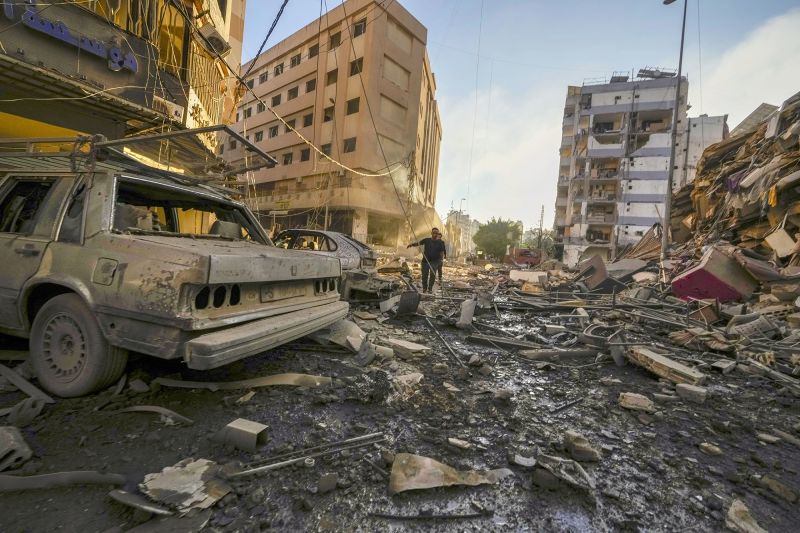
Israel’s Aerial Assault on Lebanon: The Most Intense Campaign in 20 Years, Surpassing Gaza
The Israeli bombardment of Lebanon: Understanding the complex dynamics of conflict
The recent aerial campaign carried out by Israel in Lebanon has once again brought the longstanding hostilities between the two nations into the spotlight. The intensity of the bombardment, described as the most intense outside Gaza in the last two decades, has raised concerns globally and sparked debates on the underlying factors contributing to the escalation of violence in the region.
One of the key aspects that need to be considered when analyzing the Israeli bombardment of Lebanon is the historical context of the conflict between the two countries. Israel and Lebanon have a long history of strained relations, marked by multiple conflicts and skirmishes over the years. The unresolved territorial disputes, cross-border attacks, and the presence of militant groups in Lebanon have all contributed to the ongoing tensions between the two nations.
The recent escalation of violence in Lebanon is also linked to the broader geopolitical dynamics in the Middle East. The region has been a hotspot for multiple conflicts and power struggles involving various countries and non-state actors. The involvement of external powers, such as Iran and Syria, in Lebanon’s internal affairs has further complicated the situation and fueled the cycle of violence.
Furthermore, the issue of security and defense plays a crucial role in shaping the actions and decisions of both Israel and Lebanon. The threats posed by militant groups, such as Hezbollah, have led Israel to adopt a proactive stance in defending its national security interests. On the other hand, Lebanon’s efforts to maintain its sovereignty and territorial integrity have often come into conflict with Israel’s security concerns, leading to frequent tensions and confrontations.
Another important dimension to consider is the humanitarian impact of the Israeli bombardment on the civilian population in Lebanon. The indiscriminate targeting of civilian infrastructure and the displacement of thousands of people have raised serious concerns about the violation of international humanitarian law and the need for a peaceful resolution to the conflict. The humanitarian crisis unfolding in Lebanon demands immediate attention and concerted efforts to address the needs of the affected population.
In conclusion, the Israeli bombardment of Lebanon underscores the complex and multifaceted nature of the conflicts in the Middle East. Understanding the historical, geopolitical, security, and humanitarian dimensions of the conflict is crucial for finding lasting solutions and promoting peace and stability in the region. Only through dialogue, mutual respect, and a commitment to addressing the root causes of the conflicts can the cycle of violence be broken, and a sustainable peace achieved in Lebanon and the wider Middle East.
